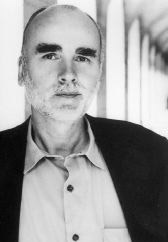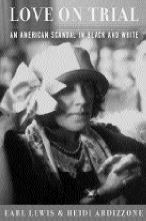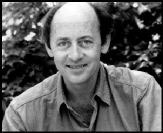In his latest collection, Port Townsend poet Sam Hamill speaks as Obaka-san, or “big fool”—an honorific that Japanese friends gave him, recalling the nickname of the early writer Ry¯okan. Like Shakespeare’s wise fools and Nietzsche’s Wise Child, Obaka-san surrenders to life instead of trying to manipulate, buy, or sell it. And like the Zen and Ch’an poet-calligrapher-monks of old, he makes his home everywhere and no place, with a community of artists spanning the centuries. In Gratitude we meet these friends—in letters and elegies the poet sends them, in his translations of their writings, and in epithalamia celebrating their children’s marriages.
Gratitude by Sam Hamill (BOA Editions, $12.50)
Hamill reads at Elliott Bay 8/26
More precisely, Hamill, his friends, and the reader meet in the sociable situation his pages provide. Creating spaces where readers and poets living and dead can gather has been his lifework as editor of Copper Canyon Press, director of the Port Townsend Writers’ Conference, author of more than 30 books, and translator of Latin, Estonian, Japanese, and Chinese poetry. Gratitude can be read as Hamill’s gift of thankfulness for being able to devote himself to these labors.
But if we open it to find a certain something for ourselves—a newly carved insight for our mental treasury, a voice that will set our deeper beliefs to music, a self-enhancing mirror of our life, or a soothing escape from it—we’ll miss the poems. The painting on the cover of Gratitude, Morris Graves’ Little Known Bird of the Inner Eye, suggests another approach. This bird’s feathers blend so imperceptibly into surrounding cloud, and its slender features are such fleeting glimpses in the whiteness, that we realize the bird not by looking for it in the painting but by letting it meet our alert yet unexpectant regard, like the selfless gaze we rest lightly, wholeheartedly, on a friend in close conversation. Indeed, speaking these poems aloud as if in quiet talk with a friend is the way to know them; for the poetry communicates “The heart by way of the ear” and asks the reader, in turn, “What’s that you wanted to say?”—as in this excerpt from “Lives of a Poet”:
This world is neither fair nor wise, but paradise reveals itself in every line. What, finally, is love? Willingness to face the end without blinking?
Hamill’s loose and easy Chinese-style couplets, Japanese-derived tanka, and free verse let the poems unfold as spontaneously as good conversation. Still, there is rhyme (so subtle we may have dreamed the sound preceding the echo) through which the words can enact, instead of merely declaring, the connectedness of everything. In being the speaker of the poems, we merge with their life and move with their changes. We grasp the poetry by letting go.
The best poems in Gratitude slow us and quiet us down for themselves, each one becoming (as Basho put it) the only poem in the world. How good the only poem in the world is! And the next one, and the next.







